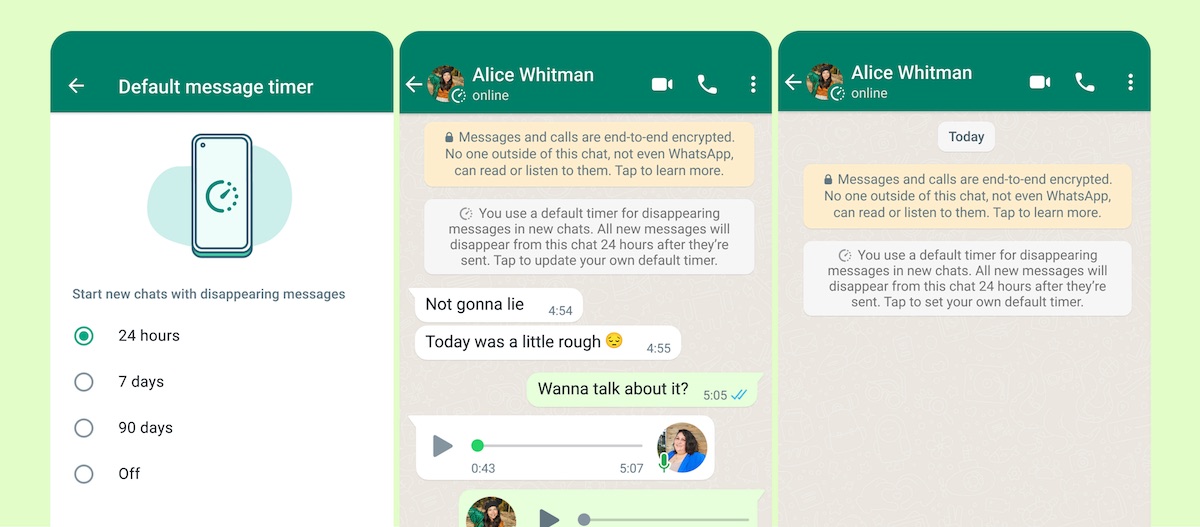WhatsApp users can now choose to easily have all new messages they send or receive disappear as the world’s largest instant messaging service broadens its offerings for what an executive described as the next privacy standard.
The Facebook-owned service, used by over 2 billion users globally, on Monday rolled out an option that allows users to enable the ephemeral feature by default for all new chats. Prior to Monday’s update, users had to manually enable ephemerality for each new chat with another individual.
WhatsApp is additionally also giving users the option to have their messages disappear after 24 hours and 90 days, in addition to the seven-day period it originally introduced the feature with last year.
“Ephemerality gives you the space to have conversations in a more open and honest way,” said Zafir Khan, Head of Consumer Product at WhatsApp, in an interview with TechCrunch. Having the option to set ephemerality on all new messages by default should help users avoid awkwardness with their friends, he said, adding that the WhatsApp team heard feedback from users while developing these new options.

Image Credits: WhatsApp
The messages will disappear after a certain time if either of the participating members in a conversation has enabled the ephemerality option, he said. WhatsApp is also rolling out this option to all group messages, and giving this choice at the time of the group’s creation itself, he said.
Ephemerality appears to be a big focus for WhatsApp as it works to expand the offering. “Privacy has always been core to WhatsApp. We launched the end-to-end encryption and made it default long before it became somewhat of a standard in messaging,” he said.
“We view ephemerality as a new emerging standard in messaging,” he said. In a Facebook post, chief executive Mark Zuckerberg added, “Not all messages need to stick around forever.”
The way disappearing messages are designed is not foolproof, to be sure.
Users can still bypass the disappearing protocol by forwarding the messages or taking a screenshot, but Khan suggested that it’s more of a non-tech problem: If the person you’re sending the messages to doesn’t wish to comply with your request, there is nothing much that can be done other than not communicating with them.
from TechCrunch https://ift.tt/3lGjnid
via Tech Geeky Hub


No comments:
Post a Comment